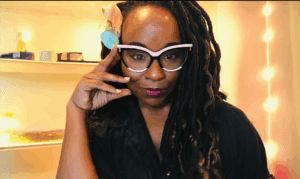Like many parents, I’ve been around youth sports for years and I loved watching my children play. It was great when we came home with a win and disappointing when we didn’t. But the point of the game was to learn sportsmanship, learn the game, to exercise, and to have fun. In all of those years of youth athletics, very few of the children who played on teams with my kids went on to receive scholarships in college for their sports and none of them, as far as I know, became professional athletes.
Yet the behavior of many parents on the athletic field would seem to tell us otherwise. I’ve seen parents cuss out officials, scream profanities at young players from the opposing teams, and even engage in fist fights with other parents. Just this week I saw a parent get dismissed from a field for cursing at an official (a twelve-year-old boy just learning to referee) at a nine-year-old girl’s recreation soccer match.
The number one reason that young people give for leaving the sport of their childhood is parental behavior. This includes embarrassing behavior of the parent toward the other team, coaches, players, officials, or the parent’s own children.
Many of the coaches in youth sports are volunteers. They lead their teams because they want to help and because they have a love of the game. Nearly all coaches that I’ve ever talked to, regardless of the sport, tell me that the parents are the worst part of the game and I get the same story from officials. It doesn’t matter if it is baseball, basketball, volleyball, soccer, girl’s sports, or boy’s – the consensus is that parents don’t behave themselves from the bleachers. That is a sad commentary.
I understand the typical complaints. Coaches don’t play our babies enough. We paid our money so our kids should get equal play time.The officials are terrible. They don’t know what they are doing. The other team is playing dirty.
But none of this matters. Arguments like these remind me of the defense children make when they have been caught hitting a playmate – “But he made me mad…”What a ridiculous defense.
In real life, your children won’t get equal treatment in the workplace.Thestronger, more talented, smarter, harder-working person gets rewarded. Bosses aren’t always fair. People in position of authority don’t always know what they are doing. That is life and we need to teach our children to deal with it.
As an official myself, I am sometimes amused as well as saddened by the things I hear from parents. “If he won’t call the foul, knock the other kid down!” Good plan. Such comments teach children that they can make up their own rules if they don’t like the way things are going. Suppose they try that at school. If they don’t like something a teacher does, maybe they should give her a good slap. How absurd.
A responsible parent should follow these rules from the sideline:
1.If it isn’t positive, it shouldn’t come out of your mouth.
2. You aren’t the coach. Sit quietly and let the coach do her or his job.
3. Leave the officials alone. What makes you think that you, with little or no training in the rules of the game, can call the game better from 50 yards away than the trained person standing ten feet away?
4.Be kind. Coaches and officials who are either volunteers or paid very little don’t need headaches from you. Consider the thing you are about to say. Would you want an adult saying that to your child if he/she were the coach/official/player?
5. Support your child by being there. That is all they want from you.
6. If you can’t follow these rules, stay home. Your kid will be happier and so will everyone else.
Most children will remember very few specific games from their youth athletic careers, but their most enduring memories will include, “the day dad got kicked out by the umpire for cursing at him.” It is sad to me when parents approach me after a soccer game to apologize for the behavior of another parent from their bench. Don’t be the parent that is an embarrassment to the team, the sport, and most importantly, your own child. It is a game — and it isn’t about you.
[Gregory K. Moffatt, Ph.D., is a college professor, published author, licensed counselor, newspaper columnist and public speaker. Dr. Moffatt has served as a regular lecturer at the FBI Academy, a profiler with the Atlanta Cold Case Squad, and consultant to numerous airlines, businesses, and schools. He has appeared on ABC, NBC, CBS, and FOX news, as well as America’s Most Wanted. He holds an M.A. in Counseling and a Ph.D. in Psychology from Georgia State University and has taught at the college level for over 20 years.]












Leave a Comment
You must be logged in to post a comment.